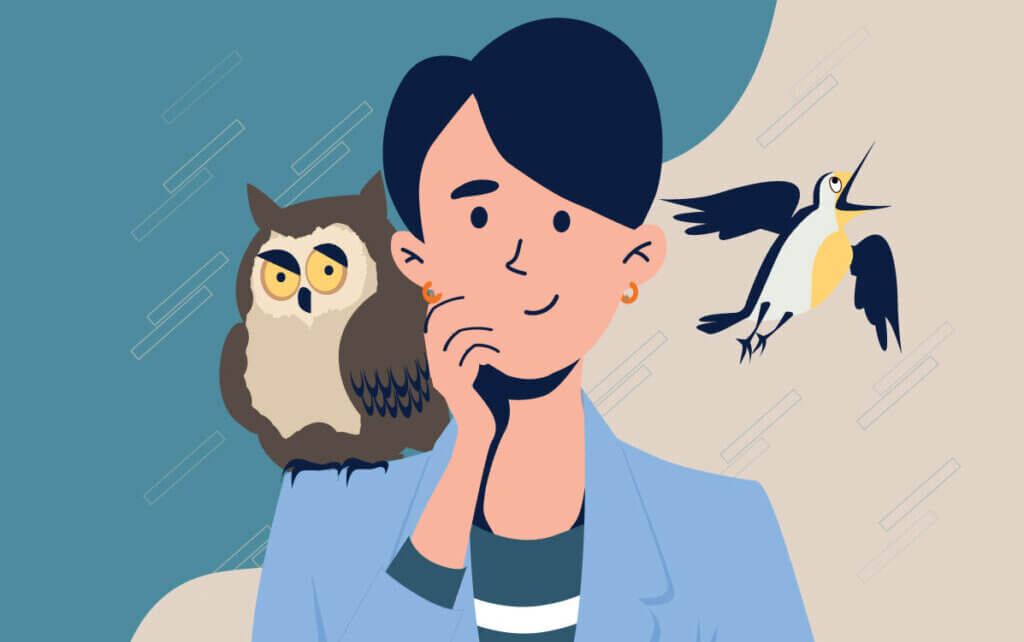Many people around the world, especially college students, consider themselves “night owls”. These are people that stay up really late at night and wake up later in the day. At college, it can be especially common to be a night owl when considering all the fun activities at night that occur or even simply just studying for exams. Although the idea of having fun at night and getting to sleep-in sounds ideal, waking up early and being an “early bird” has very valuable effects, which is why people should be an early bird, not a night owl.
First off, going to bed at an earlier time is much healthier for your mental health. People’s brains are usually sharper after getting a good and long sleep, which helps in the classroom or at work. When people go to bed and wake up earlier, it allows for the body and mind to be ready to attack the day in a more efficient manner.
When people wake up earlier it also allows for people to have more time to place healthy habits into their lives. For example, people have more time for hygienic needs, mediation, making a nutritious meal, or even going to the gym before leaving their homes for the day. Many people who wake up late can not say the same, as it is common for these types of people to simply wake up, throw clothes on, and run out the door.
Fatigue is a common occurrence during the day for people who stay up late and do not get enough sleep. This is a big disadvantage during the day, when it is very important for many people to excel mid-day at whatever tasks they are doing.
By waking up early, morning people also benefit from a greater sense of time and organization throughout the day. The extra hours in the morning allow for a slower, more intentional start to the day. Morning people have more time to plan and organize their schedules, reducing the likelihood of feeling overwhelmed later on. On the other hand, night owls often find themselves scrambling to meet deadlines or finish tasks late at night, leading to higher levels of stress and anxiety.
Another benefit of waking up early is the exposure to natural sunlight. The morning sunlight helps regulate the body’s internal clock and communicates to the brain that it is time to be awake and alert. This exposure to sunlight also triggers the production of serotonin, a hormone that boosts mood and regulates sleep patterns. For night owls who sleep in late, the lack of morning sunlight can disrupt this naturally and lead to feelings of fatigue, depression, and poor sleep quality.
Waking up earlier and being more productive during the day also has social benefits. This is mainly due to the fact that when people get things done during the day, they have more time to hang out with family members and friends during the evening. People that wake up late might miss out on social aspects of life during the evening because they were not as productive as others might have been during the day.
Going to bed early also helps people avoid bad habits more often such as drinking alcohol, smoking, etc., because a lot of these types of activities are much more prevalent at night time. Eliminating these types of habits more often help people wake up feeling healthier and more energized.
Ultimately, being a morning person is often linked to greater success in both academic and professional environments. Early risers tend to be more consistent, disciplined, and focused—traits that are highly prized in today’s fast-paced world. They are also more likely to prioritize ongoing learning and personal growth, positioning themselves for long-term achievement. On the other hand, night owls may face challenges with time management, missed opportunities, and lack of high performance due to their unhealthy sleep schedules and late-night routines.




